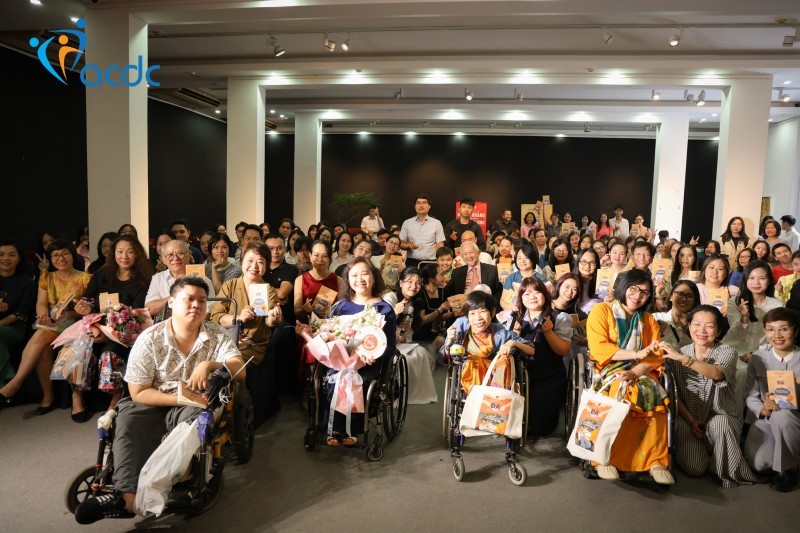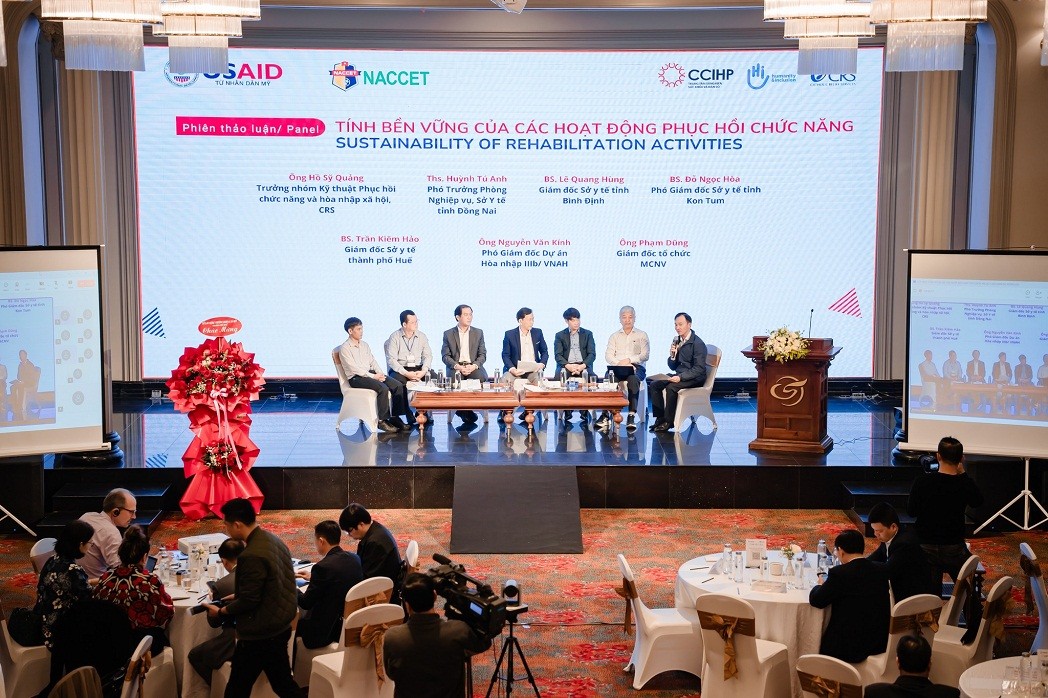USAID Supports Strengthening Rehabilitation Services for Persons with Disabilities
14 students of Vietnam's first ever Master’s of Rehabilitation with specialization in Speech and Language Therapy (SALT) program have been graduated.
The course was developed in 2017 and the first enrollment started in 2019 with support from the United States Agency for International Development (USAID) through the DISTINCT project, implemented by VietHealth and Medical Committee Netherlands – Vietnam (MCNV).
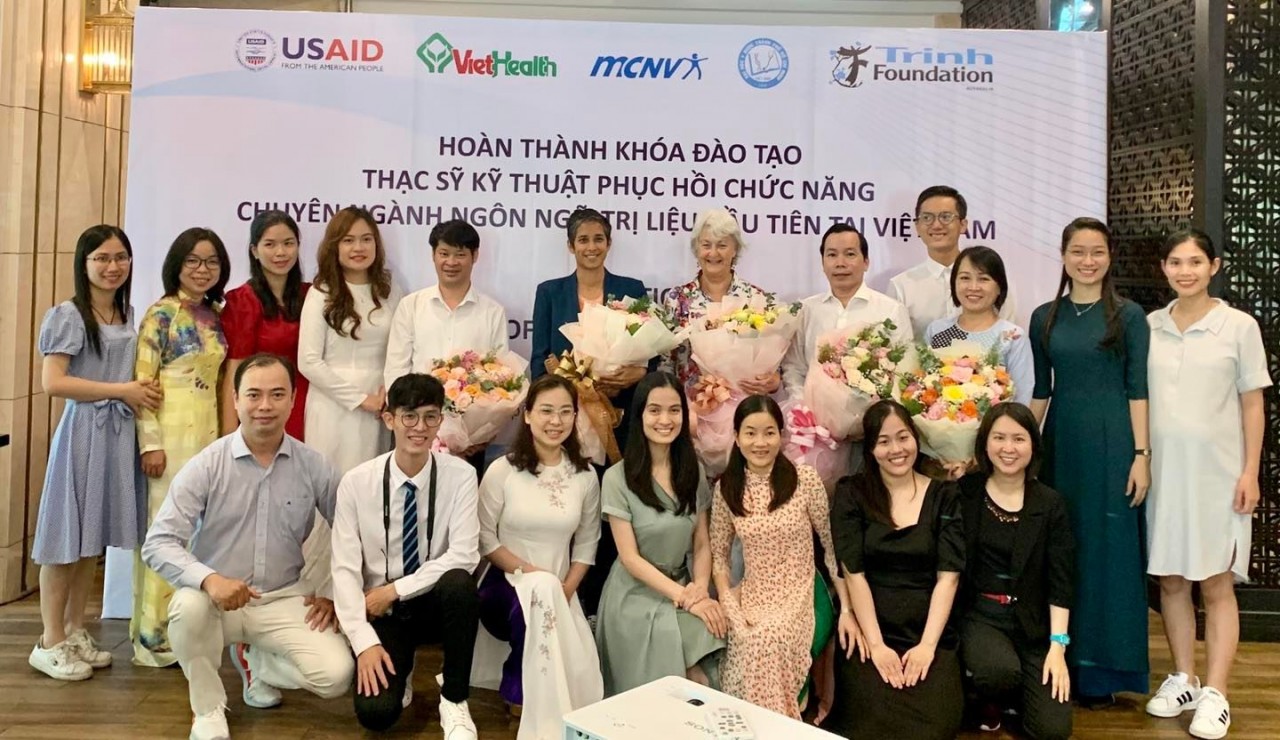 |
| 14 students of Vietnam's first ever Master’s of Rehabilitation with specialization in Speech and Language Therapy (SALT) program have been graduated. |
The graduates are rehabilitation teachers and from medical universities and colleges from Hai Duong, Thua-Thien Hue, Da Nang, Ho Chi Minh City, and Tay Ninh provinces, where they will return and provide SALT training to other Vietnamese students, helping to fill gaps of service availability and providing increased opportunities for persons with disabilities across Vietnam.
Speech and Language Therapy (SALT) is a specialty of applied science, which works to provide treatment, support and care for clients with speech, communication and swallowing impairment/disorders.
These disorders can be associated with conditions such as autism, cerebral palsy, intellectual disability, traumatic brain injury, stroke, Parkinson, cleft lips and cleft palate, head-neck cancer, among others.
Inability to speak, slurred speech, stuttering, articulation errors, etc, vastly hinder communication, negatively affect the quality of life, limiting social inclusion, access to education and career development.
SALT got recognition nearly 100 years ago since the formation of the American Speech-Language-Hearing Association in 1926. Nowadays, SALT has been widely practiced in Europe, Australia and developed countries, territories in other regions.
However, in Vietnam, SALT has only been present for around 10 years since the commencement of SALT short-term training conducted in several medical universities such as Pham Ngoc Thach University of Medicine, Hanoi Medical University, Hue University of Medicine and Pharmacy, Da Nang University of Medical Technology and Pharmacy.
SALT services in Vietnam has been in high demand. According to the National Survey on People with Disabilities conducted in 2016, over 7% of the population aged 2 years and older, – around 6.2 million, have a disability (mobility, hearing, sight, mental disorder, etc).
Despite the absence of official statistical data on the number of people needing SALT, according to the research ‘Disability in Vietnam 1999: A Meta-analysis of the Data”, 17%-27% of persons with disabilities in Vietnam have difficulties with speech and language.
However, due to the lack of manpower, this need remains unmet. According to the “Surveying the Demand for SALT education in Vietnam” conducted by MCNV in 2018, by late 2017, there were only 65 people who were trained and basically qualified to provide SALT services in the country.
Aiming to support Vietnam to address this need, a project titled “Speech and Language Therapy Education Development in Vietnam” was rolled out, dedicating to lay a foundation for Vietnam’s first university-based SALT programs, including a Master course at University of Medicine and Pharmacy in HCMC (HCMC UMP) and a Bachelor course at University of Medical Technology and Pharmacy (UMTP) of Da Nang.
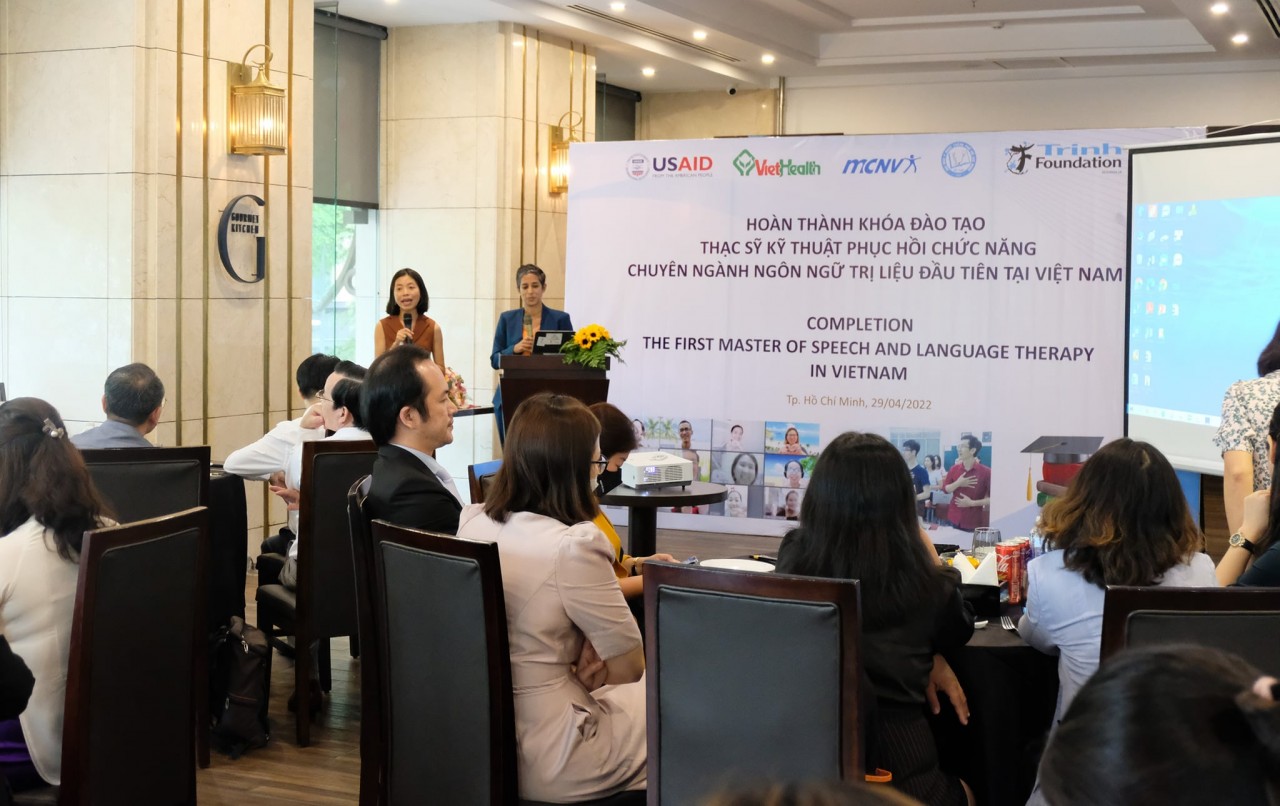 |
| From 2017 to 2022, through the DISTINCT project managed by VietHealth, MCNV received a fund from USAID to run a project on speech and language therapy (SALT) education development in Vietnam. The University of Medicine and Pharmacy in Ho Chi Minh city and Da Nang University of Medical Technology and Pharmacy are two partners in this project. The Trinh Foundation Australia participates as a technical consulting partner to MCNV. |
Since the time when the Covid-19 pandemic hit Vietnam, most of the training activities, including clinical practice, have been shifted from direct to virtual training method, with the support of on-site Vietnamese SALT and remote international experts. The curriculum was revised, adapted while new teaching materials were developed.
In early November 2021, all of the 14 students finally completed the graduation thesis defense. Their research covered a wide range of clinically applicable topics including stuttering, sound assessment for children, communication disability, demand for training in SALT of community-based rehabilitation therapists.
More importantly, the project has benefited HCMC UMP in the long-term, since it has supported the Department of Rehabilitation in developing the proposal to the Ministry of Education and Training (MOET) on issuing a training code to recognize the Master in Rehabilitation Techniques program. This Major code was approved by MOET, qualifying HCM UMP to conduct training of the three specialties.
At the same time, the project has equipped the HCMC UMP and Da Nang UMTP with basic infrastructures for SALT training as well as connecting these institutions with a network of accredited SALT experts and organizations worldwide.
Building on the results brought out by the project, three designated medical universities across Vietnam are getting ready to independently offer Bachelor program in SALT.
While HCMC UMP is training the second cohort of Master program in SALT, aiming to develop a clinical supervisor team in hospitals, at the Hai Duong Medical technical University, the first cohort of Bachelor program has been enrolled. Following the piloting course in Da Nang UMP, this is Vietnam’s second cohort of Bachelor program in SALT.
These progresses signal the sustainable impacts of the project as well as the bright outlook of SALT in Vietnam.
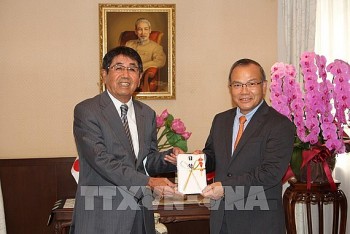 | Japanese Businesses Support Vietnamese People in Difficulties During two years of pandemic and lockdowns, many Vietnamese living and working in Japan, had a difficult time because of reduced income, or job loss. ... |
 | Australia – Vietnam’s Long-term Partner in Mekong Delta: Ambassador Australia has been a long-term partner of Vietnam in the Mekong Delta, affirmed Australian Ambassador Robyn Mudie during a recent interview with the Vietnam News ... |
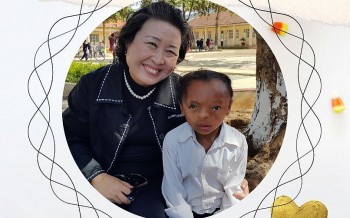 | Korean Woman Spends 11 Years Helping Vietnamese People with Disabilities A Korean woman practices love without borders. |
Recommended
 Expats in Vietnam
Expats in Vietnam
Vietnamese Tet - Where “Friends from Afar” Find a Sense of Belonging
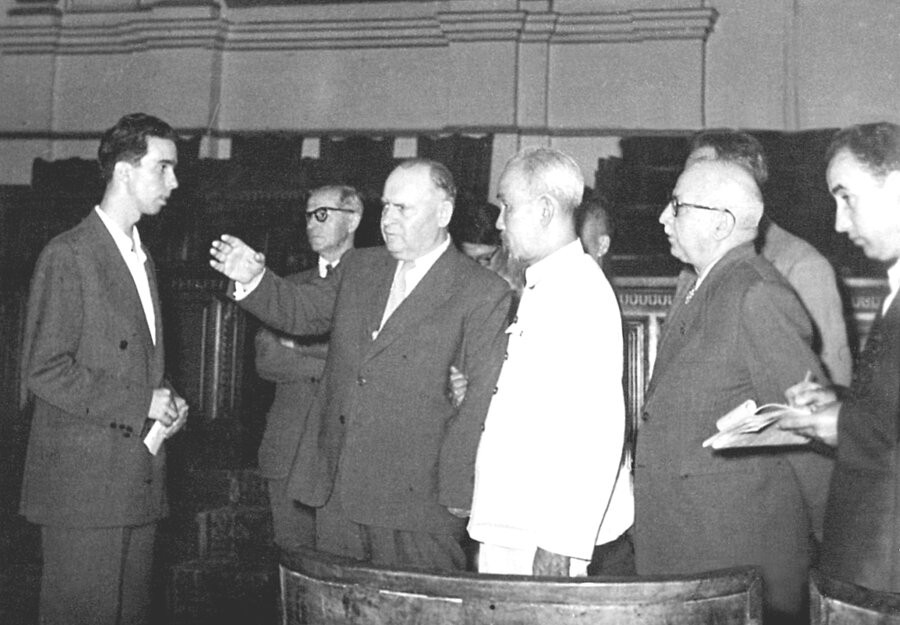 Viet's Home
Viet's Home
Ho Chi Minh’s Legacy in the Land of Roses - Bulgaria
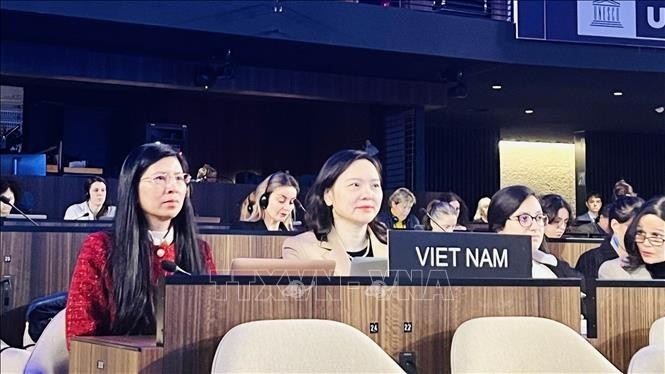 Viet's Home
Viet's Home
Vietnam Continues to Work with UNESCO to Safeguard Cultural Diversity in the Digital Era
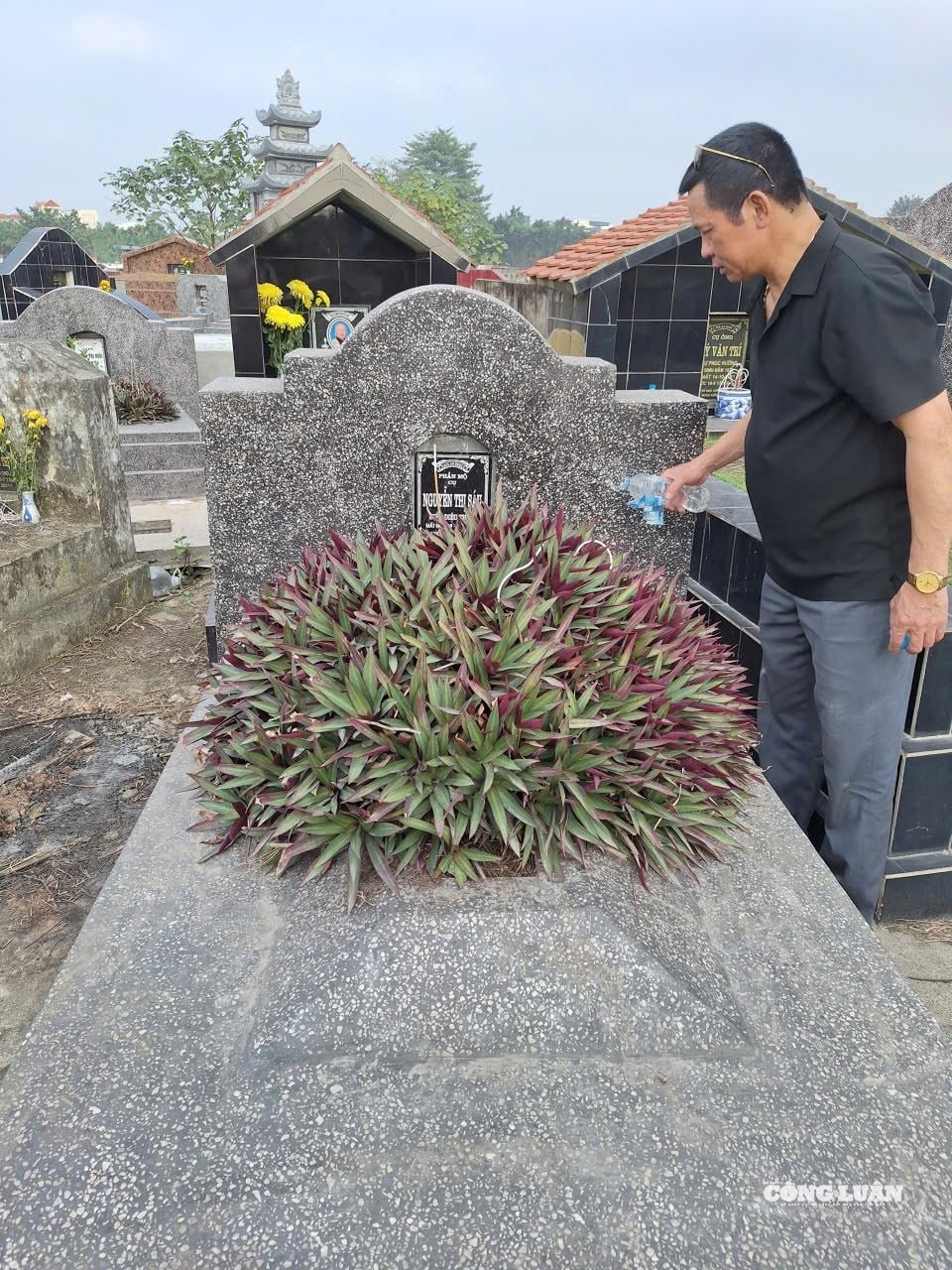 Viet's Home
Viet's Home
Inviting Ancestors Home for Tet
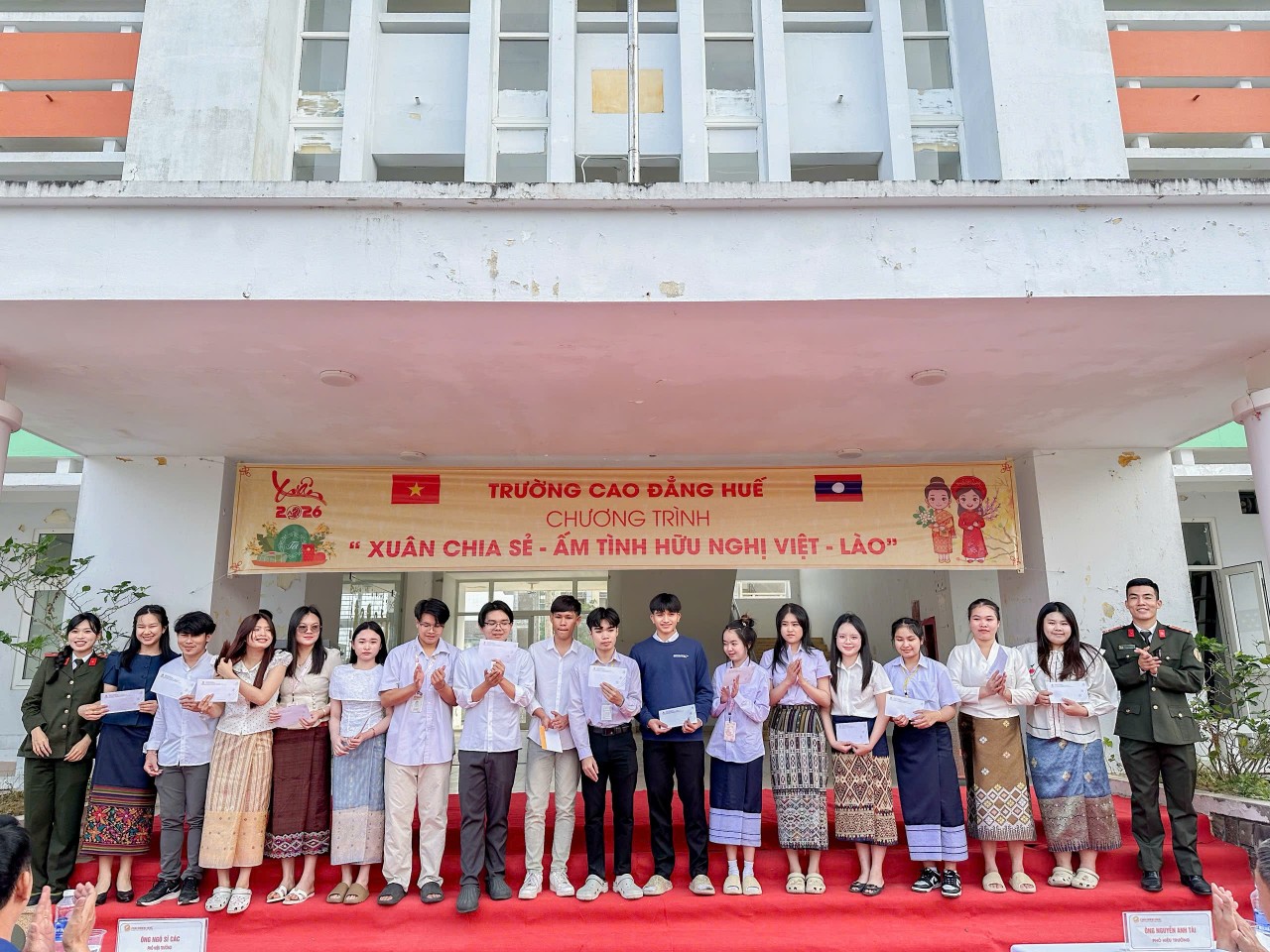 Viet's Home
Viet's Home
Universities In Vietnam Organize Tet Activities For International Students
 Viet's Home
Viet's Home
Zhi Shan Foundation Sent Tet gifts to Over 3,000 Children in Mountainous Region of Quang Tri
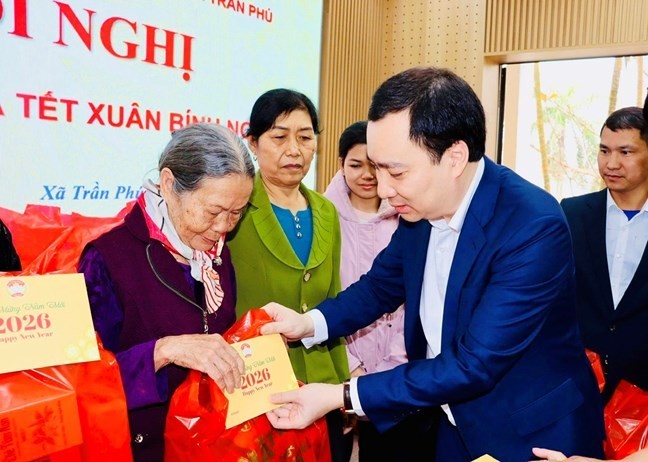 Viet's Home
Viet's Home
Hai Phong Brings Lunar New Year Gifts to Disadvantaged Families in Tran Phu Commune
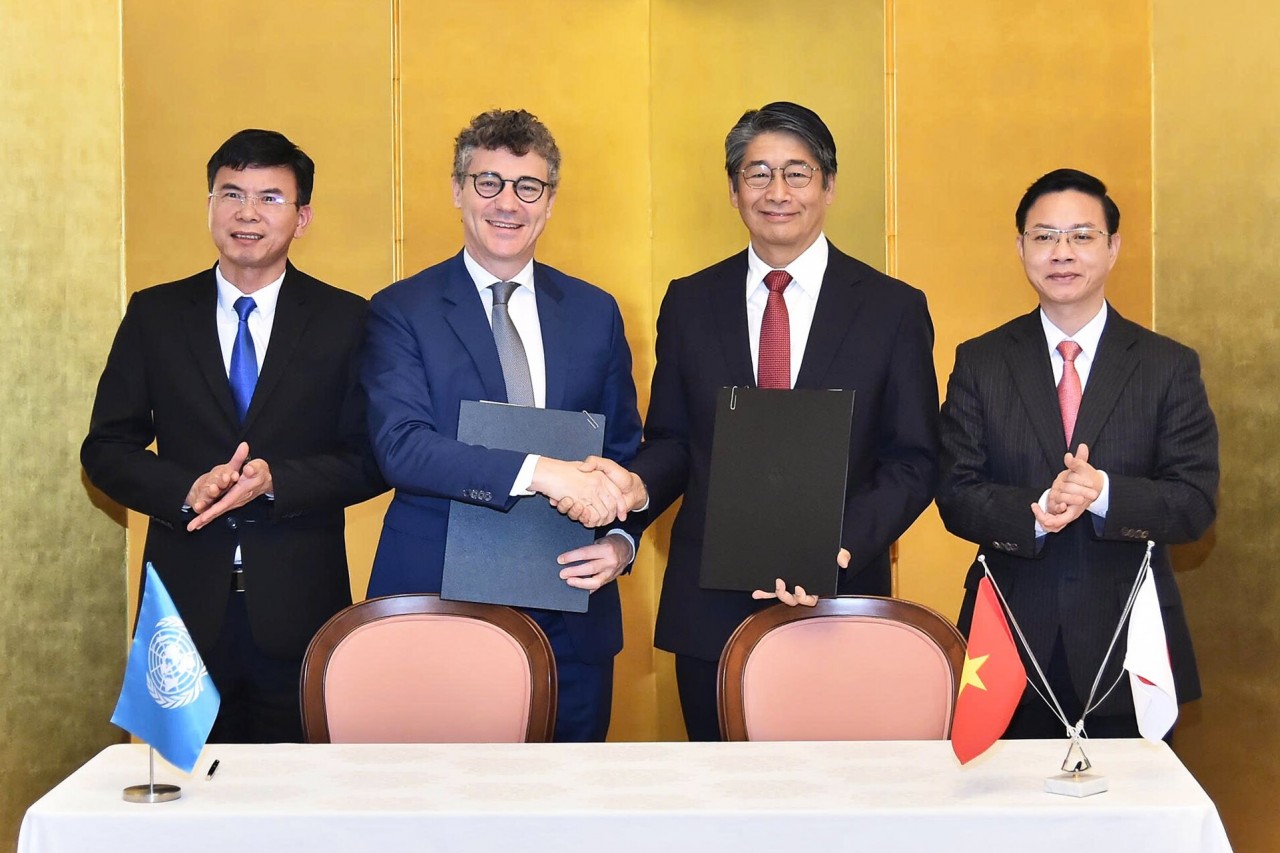 Viet's Home
Viet's Home

